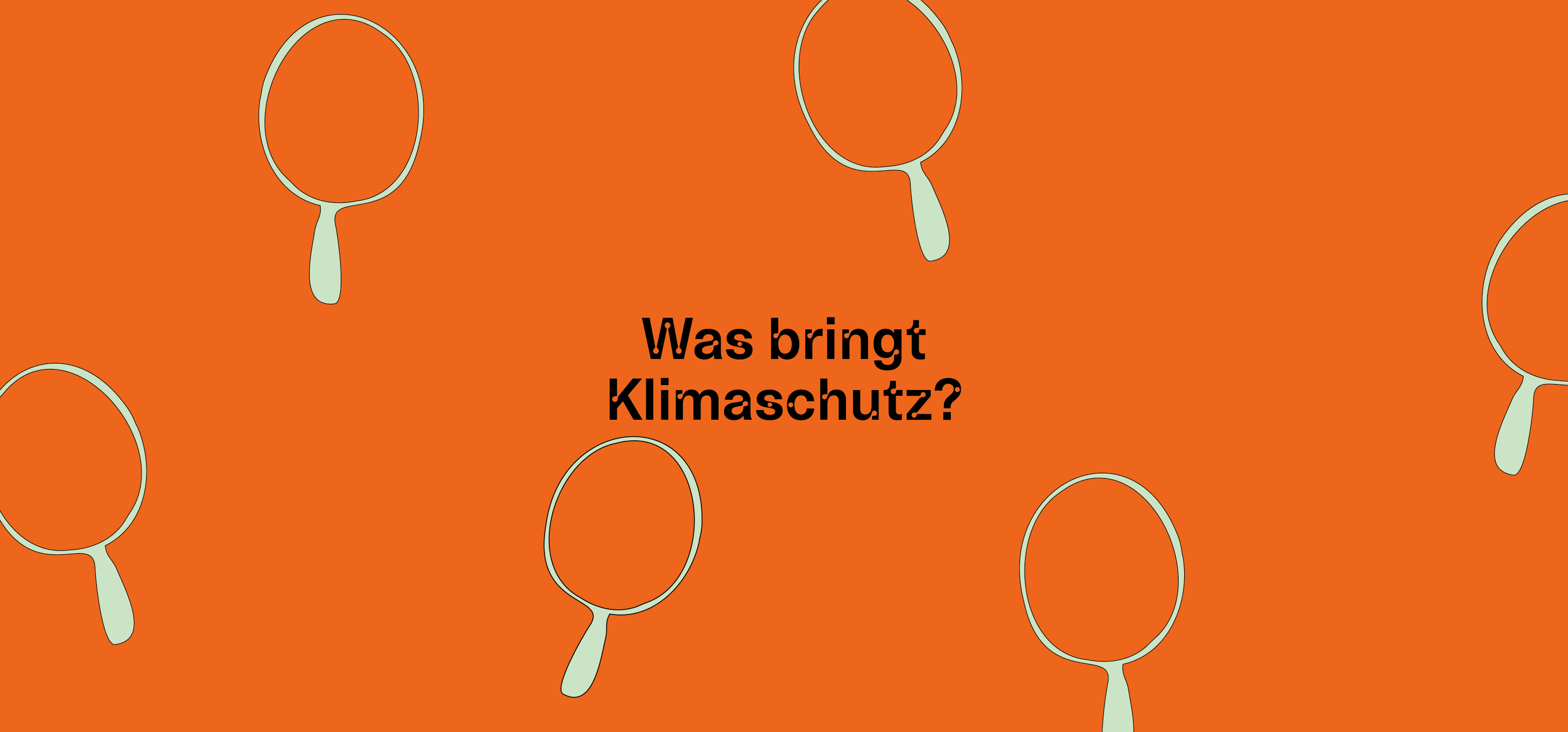Climate protection as the driving force of the economy?
Protecting the climate is not in contradiction with the economy. Indeed, it is even a prerequisite for it in the long term. But first things first. The basis of our way of running the economy and thus of modern-day western prosperity and the threat to it have the same roots: fossil-based oil, coal, and gas. Past waves of industrialization were largely based on the use of these fossil fuels. Today, this dependency not only fuels the climate crisis, it also harbors risks to the economy and security. A new era of industrialization has therefore dawned for the economy: ecologization.
Ecologization is picking up speed globally. It is aimed at a massive expansion of renewable energies and the widespread electrification of processes in all sectors. Top priority is to move away from fossil fuels and switch to renewable energy sources. And ecologization has other enormous advantages in addition to reducing greenhouse gases in order to contain the climate crisis.
A future-oriented industrial policy alone can increase value creation in Europe by 3.3 percent by 2050 and create 2.5 million additional jobs. Every euro invested in selected measures for the creation of an ecologically-based industry will generate five euros more economic output in Europe in the long term. Especially the production of key green technologies for the production, storage, and utilization of renewable energies holds growing potential: if electric cars, photovoltaics, wind turbines, batteries, and electric motors had been produced in the European Union instead of being imported, economic output would already have been around 18 billion euros higher in 2020.
Ambitious restructuring not only ensures a future worth living, but also makes sense for the economy and the labor market. However, Europe and Austria are still at the beginning. To make rapid progress with ecologization, investment in production and the expansion of future technologies and planning security are needed above all; a clear framework and legal requirements for the transition, especially for technologies. The more ambitiously this restructuring is pursued, the greater the opportunities that arise from it.
Read more: KONTEXT-Analyse „EU: Ökologisierung der Wirtschaft bringt Sicherheit, Unabhängigkeit und Wohlstand“ https://kontext-institut.at/inhalte/konklusio-eu-oekologisierung-der-wirtschaft/
What has my electricity to do with independence?
The dependence on fossil-based oil, coal, and gas not only damages the climate. It also means great insecurity. Fossil-based energy sources are inefficient and expensive, moreover.
The Russian war of aggression on Ukraine was the latest example of how rapidly the prices of fossil fuels can rise, with hugely negative consequences: electricity and heating suddenly became significantly more expensive for the population and companies—and more besides. If energy prices go up, so do the prices of all other products and services. Fossil fuels therefore entail great uncertainty for society and the economy as a whole.
This is partly due to the fact that fossil-based fuels are almost entirely imported in Austria. The extent of import dependency on gas, for example, was also 90 percent for the European Union in 2023. Clearly, this means great geopolitical and economic dependence on other countries. But it also results in economic sectors linked to fossil fuels being particularly sensitive to external shocks: A gas price shock similar to that at the beginning of the Russian war of aggression against Ukraine triggered losses of over 10 billion euros in Austria’s emission-intensive sectors in the following year, as a study has shown. Sectors that rely more heavily on fossil fuels are thus much more susceptible to losing value creation and jobs in such crises. Conversely, sectors less dependent on fossil fuels are far more resilient.
But not only during times of crisis do fossil fuels mean high energy prices and the resultant competitive disadvantages. After Russia’s aggressive war on Ukraine began, fossil-based gas in Europe was even five times as expensive as in the USA. But gas prices here were already twice as high on average over the period 2011-2019.
Moreover, fossil fuels are hugely inefficient: Almost three quarters of their primary energy used worldwide are lost through conversion into usable energy—oil and gas for heating, for example, and as a motor drive. Renewable energies are far more efficient, as in most cases they can be used directly without the need for conversion processes.
Phasing out fossil fuels not only contains the climate crisis. It also ensures greater security and independence, more stable prices, and efficiency both in the long and short term. For this reason, the expansion of renewable energies and the electrification of processes lies at the heart of the ecologization of the economy and society. The tempo must be upped considerably in Austria, and Europe more generally.
KONEXTxWIIW-Studie: https://kontext-institut.at/inhalte/preisschocks-fossile-energie/
KONTEXT-Analyse https://kontext-institut.at/inhalte/konklusio-eu-oekologisierung-der-wirtschaft/
Paper „Estimating the global waste heat potential“ https://www.sciencedirect.com/science/article/abs/pii/S1364032115015750?via%3Dihub
If the climate’s alright, are we all alright?
Protecting the climate helps not only the climate. Measures that reduce the emission of greenhouse gases have an enormously positive impact on our lives, as do those that stem the effects of the climate crisis. They boost our health, reduce costs, and allow our quality of life to improve overall.
Burning fossil oil, coal and gas not only leads to global warming; the resulting air pollution is enormous, too. In turn, the risk of respiratory diseases, cardiovascular diseases, and cancer increases. At the same time, the repercussions of the climate crisis also negatively impact our health. Cardiovascular problems develop from extreme heat; even death. High temperatures particularly affect children, the elderly, and those with pre-existing conditions. Effective climate protection lessens the adverse health effects of the climate crisis and improves air quality significantly. But there’s more: switching to electromobility and public transport reduces noise pollution. And of course, if we get on our bikes or walk more often instead of taking the car, the extra exercise keeps us fit. And if there are more trees in the city, this leads to local cooling and higher life quality outdoors. Our lives are improving inside, too, where we spend a large part of our everyday existence. The indoor climate also has a significant impact on our health. By renovating and insulating our buildings, we can improve it—and significantly reduce energy costs at the same time. The more efficient our energy consumption, the lower our heating and electricity bills. Switching to renewable energy and heating systems also creates jobs, especially in small and medium-sized enterprises. This is in turn removes our dependency on regimes such as those in Russia.
The climate crisis affects us all—though not all of us equally. This must be borne in mind so that climate protection benefits everyone. It is just those people living in countries that have historically contributed very little to the climate crisis who now feel its consequences enormously. Yet even within Austria, the responsibilities and burdens of the climate crisis are unevenly distributed. While the wealthy part of the population is fueling the climate crisis through increased consumption, higher energy consumption, and greater mobility, for example, the consequences are impacting poorer people harder. Those living in a small apartment or working outdoors on a building site, for example, are much more affected by the heat in summer than someone with a garden and a job in a cool office. Women, too, are disproportionately more affected by the consequences of the climate crisis. This unequal distribution must be taken into account: at a global level through a fair distribution of contributions to the reduction of global greenhouse gas emissions, as well as financial support to cover the costs of climate change adaptation in poorer countries. At the Austrian level, for example, through urban planning measures that mitigate the consequences of the climate crisis—such as extreme heat, for instance—for everyone. More green spaces would be one such measure. At the same time, everyone must be able to switch readily to climate-friendly alternatives. To this end, public transport needs expanding across the board and at low cost; financial support for replacing heating systems should also be forthcoming.
Thus, climate protection is not only necessary in order to ensure our basis for life on this planet into the future. It is also an opportunity to enhance our quality of life and to shape this future in a way that is both healthier and fairer.




